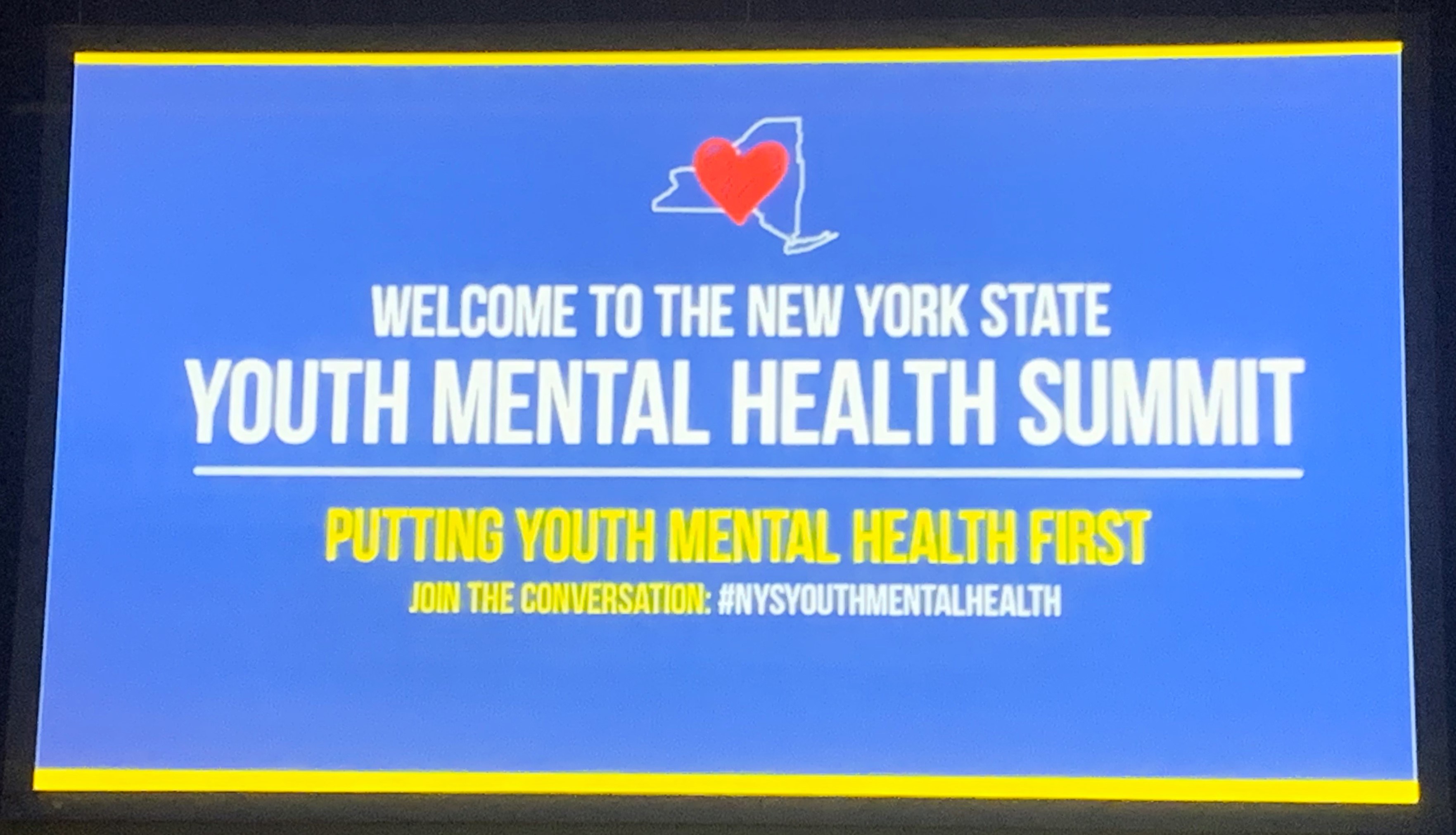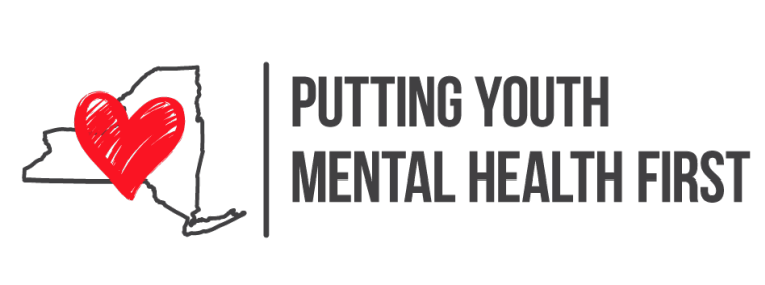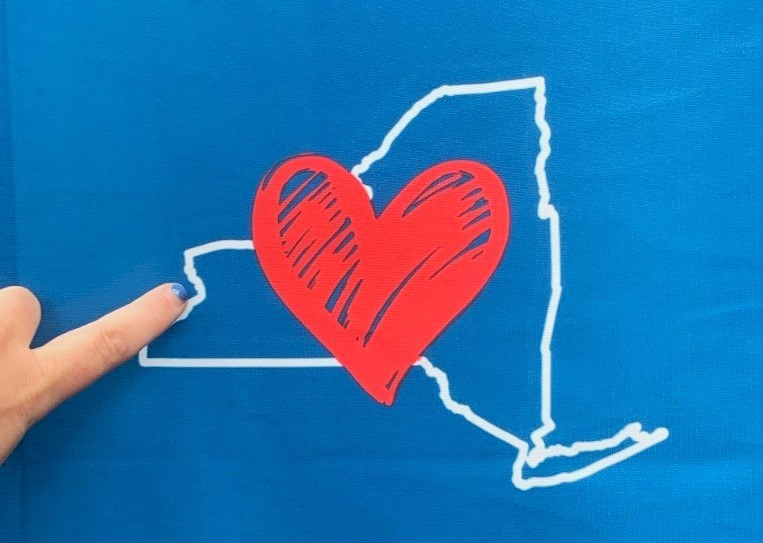Coping with the Corona virus on WYRK
See our Spot on Spectrum News!
May is Mental Health Awareness Month
Recent News
Select a headline to read more.
Youth Mental Health Summit
Thursday, June 15th 2023 the Governor's Office, in collaboration with the NYS Office of Mental Health (OMH), hosted an inaugural Youth Mental Health Summit at the Javitt's Center in New York City. Of the over 1,000 attendees, Harmonia was represented by the School Programs Coordinator, Sarah Cozzemera.
After initiating a months' long investigation into the mental health of New York's youth, in collaboration with experts from around the state and nation, the Governor's Office presented on two key issues: student re-integration in schools after the COVID-19 pandemic, and the excessive presence of social media in almost every aspect of youth lives.

A significant piece of research that framed the Youth Mental Health Summit is the 2023 Advisory issued from the Surgeon General's Office. The findings in this report link both the pandemic + social media as the top contributing factors to an alarming increase in youth mental health needs. Furthermore, it calls upon policy makers, device + app designers, as well as consumers to investigate how use of social media may be effecting child + youth developmental processes. Prioritizing healthy youth interactions in virtual communities, especially as it has been their primary source of engagement during and since the pandemic, is our collective responsibility.
But, where is the Youth voice in all of this? What do kids, teens, and young adults think about these topics? And, what would they like in terms of support from parents, adults, schools, policy makers, and program providers?
Approaching this inquiry strategically, the Governor's Office launched a two month listening-tour with approximately 200 youths, ages 13-18, across the 7 regions of New York State in early Spring 2023. The Offices of OMH + Child & Family Services (CFS) facilitated the sessions and collected data for the project. Throughout presentations and sessions during the June 15th summit, pre-recorded videos of youth interviews were played to answer these key questions in their own words. Youth from the listening tour were invited to the summit to participate in the breakout sessions, and there were youth representatives on panel discussions. The full report (Youth Mental Health Listening Tour) is illuminating in terms of gaining insights from youths directly. Included are specific ideas and suggestions on how adults + kids can work together to build resources. Pages 18-20 are a Resource Addendum for families to access mental health + wellness services.

WHAT DO YOUTH IN NY WANT? How can parents, adults, teachers, policy makers, and program providers support healthy youth development?
- CONSISTENCY: it takes time for most youth to feel like they can trust adults with information about their lives without feeling like they’re going to be immediately judged, reprimanded, or condescended to. Showing up and building trust begins from a place of partnership.
- TEENS ARE NAVIGATING BIG FEELINGS: some days they will want to talk + others they won’t…also, they can’t totally predict when those days will be. So, they need our patience while they are learning how to navigate the feelings associated with social relationships and their own self-perception. Any support we can give around processing those feelings and helping youth with emotional regulation is helpful.
- COMMUNICATION: Everyone needs to work towards respecting each other with our words. As adults, we need to work consistently to model open, trusting, and healthy channels of communication.
- PEERS: more than having adult confidants, youth want PEER MENTORS / PEER ADVOCATES / PEER VOICES.
ACTION STEPS – MOVING FORWARD: What can parents, adults, teachers, policy makers, and program providers do or work on building with youths:
1) Kids need physical spaces + in-person activities to participate in. Post-COVID, youth are searching for opportunities to have semi-structured, organic, and meaningful interactions. A quote directly from a Youth Advocate at the Youth Mental Health Summit: “We want more community spaces – that aren’t totally like a clinic or just the time during class to hangout”
- SO, WHAT DOES THAT LOOK LIKE...these are a few ideas:
- Pet Therapy
- Mindfulness Space
- Wellness Club
- Gyms
- Gardens
- Service Projects
- Art projects / crafting / making things
- Community centers
- Movies
- Mall
- Outside Activities -- sports, nature trails, outdoor games, scavenger hunts, geo-caching
- Kitchens -- cooking classes / cooking club
- Churches
- 4H Club
- Boys + Girls Club
2) Whenever possible, include youth voices in decision making. Adults that are engaged in structuring, planning, organizing resources, events, activities, policy making that is focused specifically on youth -- need to ensure that youths have representation at the table, and that their voices are heard. What can you do as an adult advocate for youth?
- Find youth leaders to represent their peer group in service projects, community planning, in-school support systems, etc.
- Find school clubs / orgs that are involved in service projects + work with them for funding, for recruiting additional student participants, etc.
- Establish or strengthen Youth Peer Organizations and supports in schools and community organizations.

At Harmonia, we know that strong families, supportive school environments, and healthy communities raise engaged, caring citizens. If you are interested in partnering with our organization to learn about or help provide additional resources for youth in our community, please contact School Programs Coordinator, Sarah Cozzemera at scozzemera@harmonia-care.org.
